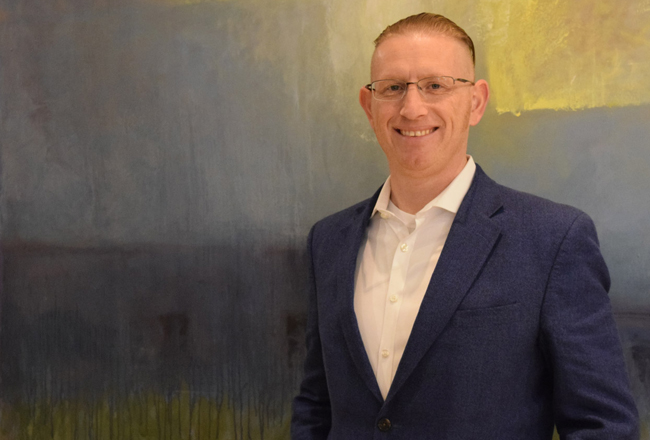Suite Talk: Alan Murray, president and CEO of Empire BlueCross BlueShield

For Alan Murray, president and CEO of Empire BlueCross BlueShield, the new year is being framed as a period of reinvention.
Business Journal Senior Enterprise Editor Phil Hall spoke with Murray regarding the direction in which he is taking the company.
What were the company”™s significant accomplishments of the past year?
“I started in September 2018 (and) 2019 has been, for me, a foundational year, and the biggest accomplishment we”™ve had is re-establishing ourselves in the New York area ”” and part of that is refocusing on our overall purpose as an organization.
“What I think was a very bold and important mission for the organization is to measurably and materially improve the health of all New Yorkers in the next five years. There is a host of other things ”” we”™ve introduced new networks, had a very significant change to the culture and the leadership team in order to get there, and we”™ve introduced a new set of technology and approaches to help with our customers and to look at the costs, disease management and care.”
Can you tell us more about your technology-related accomplishments?
“We introduced a new app called Sidney and it is going to be available for our whole population. It is designed to be your whole health care application. If you are one of our members you can download your ID cards and look at your benefits. But what is really great about it is that you can type in generic questions like you are talking to Alexa or Google Home and it has the capability to answer you and follow you from that native text.
“The whole point is to make it as simple as possible. It also has online directories and we are beginning to introduce the ability for consumers to make appointments with physicians from that app.”
Let”™s look ahead for this year. What is at the top of your agenda?
“It will be about explaining to the market that we sell dental, vision, disability. We have, with Anthem, our own pharmacy benefit manager. We sell accident and supplemental benefits.
“And what”™s really powerful is that we all work within the same platform. So, we are able to monitor your entire health and not just one piece of it. What is powerful about that is the way we can communicate with physicians, and we can actually make a difference in providing total health care.
“Let me give you an example. Most people are unaware that 20% of all opioids are prescribed by dentists. But a dentist typically doesn”™t know that you might have had orthopedic surgery and that you may be on opioids. We now have the technology that interacts with our system and understands your health care landscape.
“With our vision providers, we”™ve helped diagnose in the past year thousands of diabetics that might have otherwise gone undiagnosed.”
That sounds proactive for a health insurance company. Are your peers doing anything like it?
“I think our peers are in various stages. Technology is expanding and our competitors are looking at it in different ways. For us, our mission is about improving health, so how do we harness that to make a difference? Some of our peers are doing likewise and some of them have subtle but different strategies.”
What will you be doing to bring down costs of premiums?
“There are a number of different paths we are going down. Most important is our collaboration with hospitals and providers.
“We”™ve long had some very deep relationships, and I will give you an example. Michael Dowling, the CEO of Northwell Health, and I held a first-of-its-kind presidents”™ forum on Veterans Day where we talked about the innovations from both of our organizations and how we are overlapping them. We discussed how we could make sure that the patient had as clean and as smooth of a relationship between provider and payer as possible.
“The other track is legislative. In 2019, Empire and a large coalition worked hard with the legislative body in Albany towards the first-of-its-kind hospital surprise billing law getting passed.”
Some presidential candidates wouldn”™t mind seeing your company go out of business and you losing your job. How do you respond to the calls for Medicare for All?
“Right now, there isn”™t enough data for us to look into that deeply. I focus on New York specifically. There is 5% of the population that is uninsured right now. It”™s come down from 10%. And many of them are eligible for Medicaid and Medicare Advantage.”
In 2020 the first wave of millennials will turn 40 as baby boomers move further into senior citizenry. How is your company addressing the needs of aging populations?
“We have an aging population that is also very familiar with technology and with a lot of networks and integrations we”™ve had over the last 10 years. For us, it is about providing people with all of the data they need in order to understand their own health.
“As someone ages out of employer insurance and into Medicare Advantage or Medicare supplemental plans, how do we make sure we provide the continuity with their physicians?
“For millennials, we focus on how do they access care. We”™ve launched LiveHealth Online, which is our telemedicine provider, and we”™ve also done the same for behavioral health. The same occurs with urgent care. We are seeing less use of PCPs and more use of unscheduled and convenience care.”